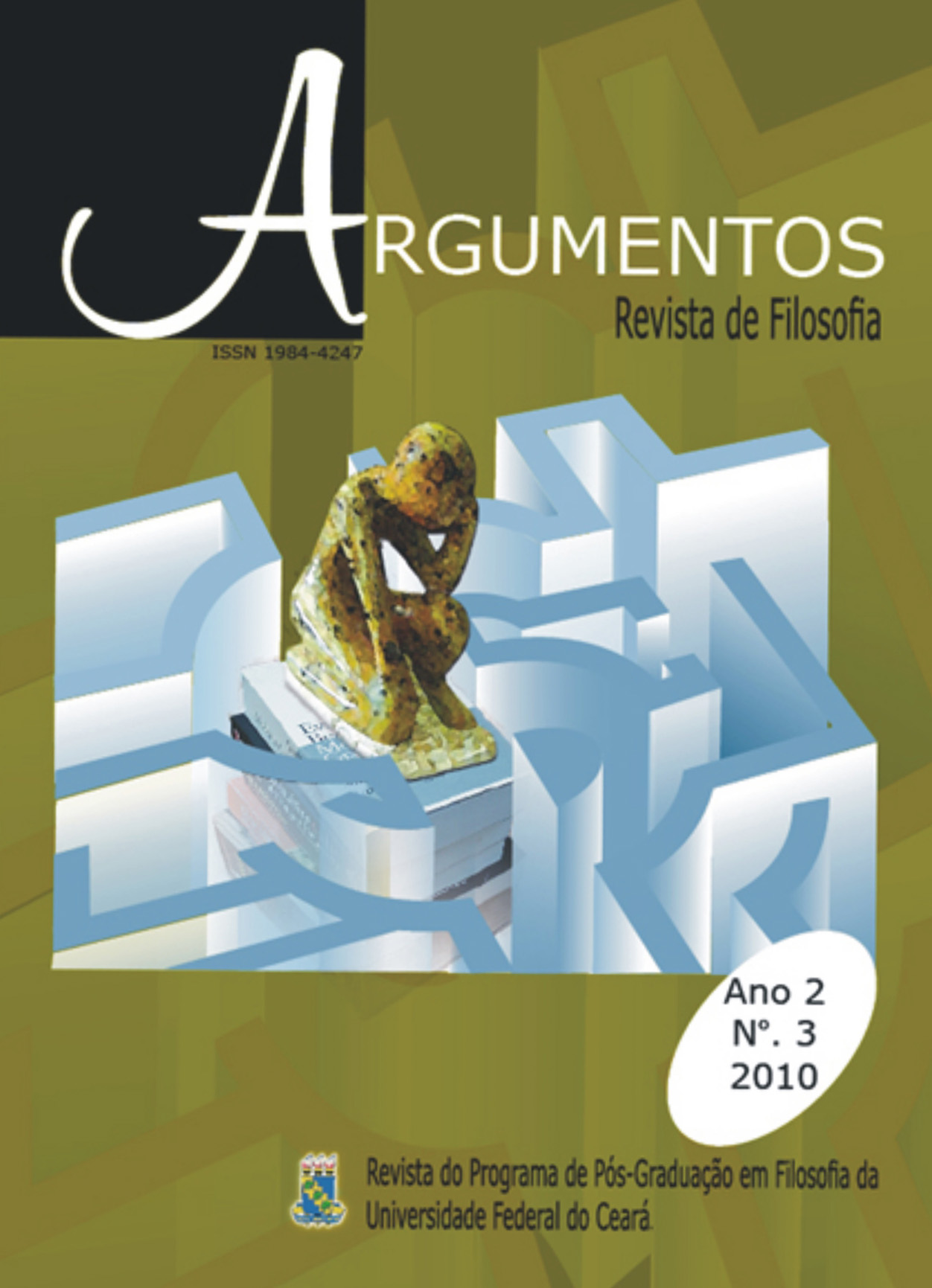O livre-arbítrio e o problema do mal em Santo Agostinho
Palabras clave:
Bem. Mal. Livre-arbítrio. Pecado. Justiça divina.Resumen
Em sua obra A Natureza do Bem, escrita em objeção à concepção de Mani no que diz respeito ao problema do mal e, consequentemente, à dualidade de princípios em que se fundamentam toda a ontologia e o sistema cosmológico da seita maniquéia, Santo Agostinho demonstra preocupação em esclarecer que toda natureza é um bem, uma vez que procede de Deus e que o mal, não incluído entre os seres criados, é tão somente aquilo pelo qual se dá a corrupção do modo [modus], da espécie [species] e da ordem [ordo], que são os atributos constitutivos dos seres ou naturezas. A tese agostiniana da inexistência ontológica do mal presente na referida obra, bem como todas as suas implicações filosófico-teológicas, já aparecia no diálogo O livre-arbítrio em que, respondendo aos questionamentos do jovem Evódio, Agostinho esclarece mais pormenorizadamente o que, mais tarde apresentaria em A Natureza do Bem, a saber: que sendo todas as coisas boas, o livre-arbítrio não poderia ser um mal, embora por meio dele possa o homem também pecar. Valendo-se da contra-argumentação agostiniana das teses defendidas pelo maniqueísmo, este trabalho, com efeito, tem por objetivo pensar a relação existente entre o livre-arbítrio humano e a origem do mal, segundo Santo Agostinho, a partir da reflexão das obras mencionadas.
Descargas
Descargas
Publicado
Cómo citar
Número
Sección
Licencia
Los autores que publican en esta revista aceptan los siguientes términos:
- Los autores mantienen los DERECHOS AUTORALES otorgados a la revista O el Derecho de Primera Publicación, con el trabajo licenciado simultáneamente a Creative Commons License Attribution (CC BY) que permite compartir el trabajo con reconocimiento de autoría y publicación inicial en esta revista.
- Los autores pueden aceptar contratos, distribución no exclusiva de la versión del trabajo publicado en esta revista (por ejemplo: publicación en el repositorio institucional o como capítulo del libro), con reconocimiento de autoría y publicación inicial en esta revista.
- Se permite a los autores publicar y distribuir su trabajo on-line (por ejemplo, en repositorios institucionales o en su página personal) durante el proceso editorial de información de que el artículo está en proceso de publicación. Esto puede aumentar el impacto y cita de trabajos publicados.

SOBRE COPYRIGHT Y POLÍTICA DE ACCESO LIBRE
La revista utiliza la atribución CC BY



.jpg)










._._3.png)
1.jpg)
._._._.png)
